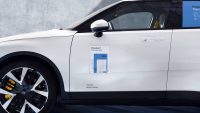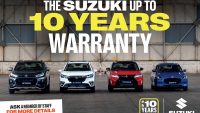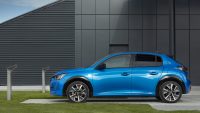 Opinion article from Andrew Ballard, principal consultant at Experian’s Automotive business
Opinion article from Andrew Ballard, principal consultant at Experian’s Automotive business
THE average cost of a new car is about £29,000 – a significant amount to someone earning the UK’s average salary of just over £26,000. People understandably want value for money, while dealers have to operate as a commercial business and follow industry regulations.
Car sales people strive to meet the needs of customers with their expertise and knowledge. Statistics suggest they must be doing a pretty good job – new-car registrations are on the increase. The challenge is to improve sales month on month, while ensuring people are free to make their own decisions when buying with finance package they can afford in the long-term, as guided by industry regulations.
 Motor dealers have to look for ways to balance the requirements of car buyers – seeking a reliable car to get to work and transport them and, in many cases, their family around, which fits into their budgeted price range. Is there a way of meeting all these needs and operating within regulations while running a successful business?
Motor dealers have to look for ways to balance the requirements of car buyers – seeking a reliable car to get to work and transport them and, in many cases, their family around, which fits into their budgeted price range. Is there a way of meeting all these needs and operating within regulations while running a successful business?
Our survey of more than 1,100 people – which asked what car they would buy if money was no object – suggests the answer is yes.
It’s no surprise nearly a quarter of the people we spoke to said they would go for a sports car, yet just nine per cent would park an expensive luxury car on their drive. The majority of people made practical choices – 13 per cent would like a small economical car, 17 per cent opted for a lower medium-sized car and 13 per cent wanted a versatile sports utility vehicle.
Perhaps these prudent would-be car buyers have become used to matching their aspirations to their finances. At Experian, we are seeing more and more people check their credit history and carefully consider their budget before they even venture into a car showroom, so they know what they can afford.
This practicality has also been fuelled by the Government’s environmental initiatives that promote and reward the use of efficient, low-emission vehicles for private motorists and also business users needing to assess their benefit in kind liabilities. We are all taking on board the benefits of low-carbon motoring from both and environmental and financial perspective. Manufacturers are competing to provide the most fuel-efficient engines and viable electric and alternative fuels vehicles, and employers are educating staff on driving behaviour to cut fuel bills.
All these factors combined are changing people’s attitudes towards cars. Car buyers aren’t just asking for style, speed and status – they also look for efficiency, versatility and reliability. Our research shows low running costs are a major driving factor in why we replace our cars.
The shift in focus to motor finance deals which are affordable in the long-term and growing awareness of the environment impact of vehicles has altered the wants and needs of car buyers, and consequently what retailers offer. Not only is this a winning combination for everyone, but it ensures the motor industry remains a sustainable and healthy business environment.
































